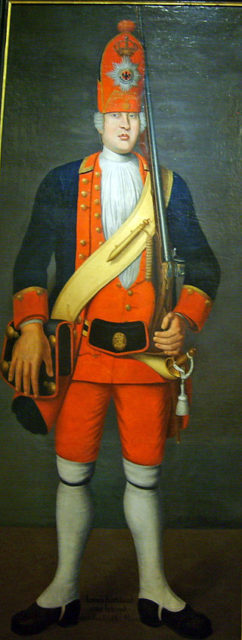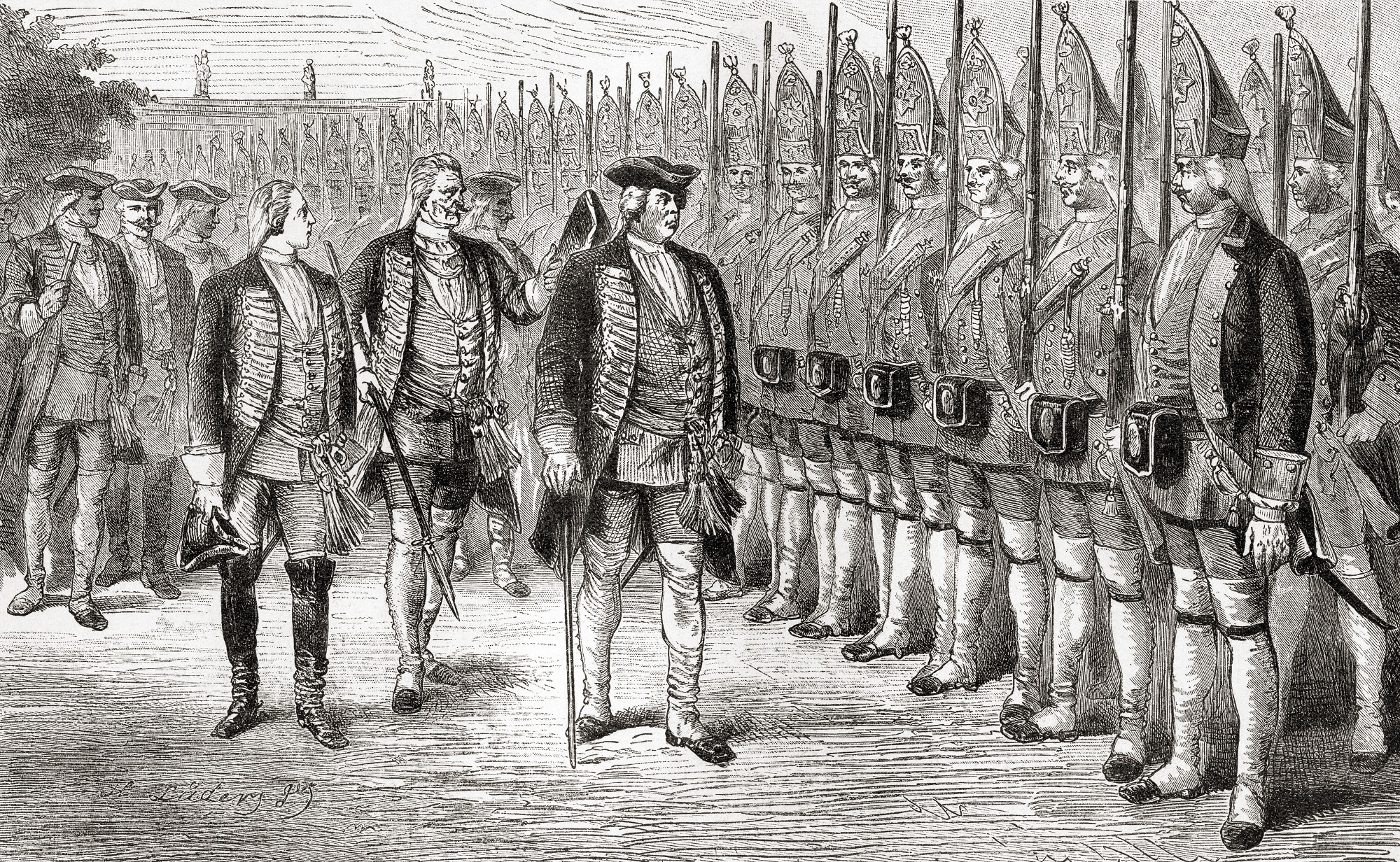Under the direct control of Frederick William I during his reign was a military regiment filled with giant soldiers. Officially they were called “The Grand Grenadiers of Potsdam,” but they would become known as the “Potsdam Giants” and the “long fellows.” The idea of a regiment of tall men may seem at first to be a logical one, perhaps under the belief that taller soldiers are stronger or more capable warriors but their existence was more to satisfy the king’s obsession rather than any practical military use.
The Potsdam Giants

When Frederick William I became the king of Prussia in 1713 he did away with the luxuries that his father enjoyed as he did not want to use the treasury to fund his lifestyle. He also set about expanding the Prussian Army, eventually doubling it in size.
During this expansion Frederick discovered a particular desire for a regiment of exceptionally tall soldiers, resulting in the Potsdam Giants.
Unsurprisingly, the main requirement to be in the regiment was one’s height; at least 6 ft 2 in. As they directly served the king, those in the regiment were paid handsomely and received preferential treatment.
A Potsdam Giant’s salary was dependant on his height: the taller you were the better the pay. But they were all given the best food and accommodation available. The soldiers were adorned in regal blue uniforms and topped with a 45 cm Grenadier cap that added to their towering stature.
However, these bonuses were undercut by their often forced recruitment and Frederick’s strange demands. The regiment was part of the military, but it would never see combat and was treated more like a circus act to appease the king.
Sometimes they were paraded in front of important foreign figures while other times they were ordered to march in front of Frederick simply for his own entertainment. When he was sad he liked to assemble the regiment, or paint individual members from his memory.
Frederick’s obsession for his giant soldiers can be summed up in a sentence he said to a French ambassador: “The most beautiful girl or woman in the world would be a matter of indifference to me, but tall soldiers—they are my weakness.”
A large number of the Potsdam Giants were unhappy with their positions, as they were often forcibly taken and placed into the regiment. In fact, some were so desperate that they attempted suicide or deserted.
Recruitment
Despite their lavish treatment, many of the regiment’s members were quite literally forced into service. Frederick would pay large sums of money to tall parents in exchange for their child, hoping that they had a predisposition for great height.
He would also compensate farmers well for offering over their tallest farmhand to the king’s prized unit. In addition, foreign leaders would donate their own tall troops as a gesture for good relations.
When tall men would not accept offers to join the regiment, they would simply be kidnapped. In fact, the Potsdam Giant’s tallest soldier, James Kirkland, was kidnapped and forced into the unit. Kirkland was a 7 ft 1 in Irishman that worked for the Prussian ambassador to London. However, the ambassador actually had no use for the man himself but was planning to have him placed into the Potsdam Giants.
Frederick was notoriously frugal but dedicated enormous amounts of money to recruiting giant men. A team of scouts hunted for tall men all over Europe. This odd hobby became well known internationally, driving up the prices of giants.
In perhaps the darkest part of the story, when he began running short on tall men, Frederick started playing god to create more.
Obsession with height
Frederick’s obsession with height seemed to be insatiable. He began a series of dark experiments to try and increase his soldiers’ height or to breed more tall people. Tall men would be paired with tall women in the hopes they would produce tall children, not dissimilar to the Nazis trying to create a perfect Aryan race.
For serving soldiers, Frederick wanted to make them even taller. A custom-made rack was built and soldiers were placed on and ‘stretched,’ to permanently increase their height. These stretching sessions were often watched over by the king himself, but he later abandoned the experiments as too many soldiers were dying.
When Frederick William I died in 1740, so did the passion behind The Grand Grenadiers of Potsdam. His son, Frederick the Great, had little interest in the giant regiment, which at the time of Frederick’s death was around 3,000 men strong. Seeing it as a financial drain Frederick the Great transferred most of the men to standard units.
The regiment was officially disbanded in 1806.
